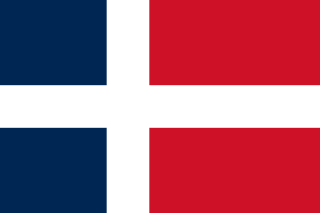
The 1952 Summer Olympics, officially known as the Games of the XV Olympiad, were an international multi-sport event held from 19 July to 3 August 1952 in Helsinki, Finland.

The Helsinki Olympic Stadium, located in the Töölö district about 2.3 kilometres (1.4 mi) from the centre of the Finnish capital Helsinki, is the largest stadium in the country, nowadays mainly used for hosting sports events and big concerts. The stadium is best known for being the centre of activities in the 1952 Summer Olympics. During those games, it hosted athletics, equestrian show jumping, and the football finals.

At the 1952 Summer Olympics in Helsinki, 33 athletics events were contested, 24 for men and 9 for women. There were a total number of 963 participating athletes from 57 countries.

The National Olympic Committee (NOC) of the Saarland was founded in the spring of 1950 in the Saar Protectorate, which existed from 1947 to 1956, a region of Western Germany that was occupied in 1945 by France. As a separate team, Saar took part in its sole Olympic Games at the 1952 Summer Olympics before being allowed to rejoin the German team in 1956. Thirty-six competitors, 31 men and five women, took part in 32 events in nine sports.

Denmark competed at the 1952 Summer Olympics in Helsinki, Finland. 129 competitors, 115 men and 14 women, took part in 73 events in 15 sports.

New Zealand at the 1952 Summer Olympics was represented by a team of 14 competitors and three officials. Selection of the team for the Games in Helsinki, Finland, was the responsibility of the New Zealand Olympic and British Empire Games Association. New Zealand's flagbearer at the opening ceremony was Harold Cleghorn. The New Zealand team finished equal 24th on the medal table, winning a total of three medals, one of which was gold.
Gymnastics at the 1952 Summer Olympics was represented by 15 events: 7 for women and 8 for men. All events were held between 19 and 24 July in the Messuhalli building in Helsinki. Men's events were held in Exhibition Hall I while women's events were contested in the smaller Exhibition Hall II.

Austria competed at the 1952 Summer Olympics in Helsinki, Finland. 112 competitors, 91 men and 21 women, took part in 70 events in 16 sports.

Czechoslovakia competed at the 1952 Summer Olympics in Helsinki, Finland. 99 competitors, 86 men and 13 women, took part in 70 events in 11 sports.

Athletes from the Federal People's Republic of Yugoslavia competed at the 1952 Summer Olympics in Helsinki, Finland. 87 competitors, 77 men and 10 women, took part in 48 events in 11 sports.

The Union of South Africa competed at the 1952 Summer Olympics in Helsinki, Finland. 64 competitors, 60 men and 4 women, took part in 59 events in 13 sports.

Japan competed at the 1952 Summer Olympics in Helsinki, Finland. Japan returned to the Olympic Games after not being invited to the 1948 Summer Olympics because of the nations's role in World War II. 69 competitors, 58 men and 11 women, took part in 60 events in 13 sports.

Brazil competed at the 1952 Summer Olympics in Helsinki, Finland. 97 competitors, 92 men and 5 women, took part in 51 events in 14 sports. Brazil won three medals at the 1952 Summer Olympics. Brazil won its first gold medal since its debut at the 1920 Summer Olympics. Adhemar Ferreira da Silva won the men's triple jump. Together with the bronze medal won by José Telles da Conceição in men's high jump; those were the first medals won by Brazilians at Athletics in the Olympic Games. Tetsuo Okamoto became the first Brazilian swimmer to win an Olympic medal, the bronze at the men's 1500 metre freestyle.

Israel competed in the Summer Olympic Games for the first time at the 1952 Summer Olympics in Helsinki, Finland. 25 competitors, 22 men and 3 women, took part in 17 events in 5 sports.
The women's 3 metre springboard, also reported as springboard diving, was one of four diving events on the Diving at the 1952 Summer Olympics programme.

Evelyn Tokue Kawamoto, also known by her married name Evelyn Konno, was an American competition swimmer and two-time Olympic medalist.
The women's 200 metre breaststroke event, included in the swimming competition at the 1952 Summer Olympics, took place on 26–29 July, at the Helsinki Swimming Stadium. In this event, swimmers covered four lengths of the 50-metre (160 ft) Olympic-sized pool employing the breaststroke. It was the sixth appearance of the event, which first appeared at the 1924 Summer Olympics in Paris. A total of 33 competitors from 19 nations participated in the event.
The Women's long jump at the 1952 Olympic Games took place on July 23 at the Helsinki Olympic Stadium. Yvette Williams from New Zealand won the gold medal and set a new Olympic record.

The women's shot put event at the 1952 Summer Olympics took place on 26 July at the Helsinki Olympic Stadium. Soviet athlete Galina Zybina won the gold medal and set new world and Olympic records.
Liliana Tagliaferri is an Italian sprinter who is twice National Champion at 100 metres and competed in the 1948 Summer Olympics and the 1952 Summer Olympics.














